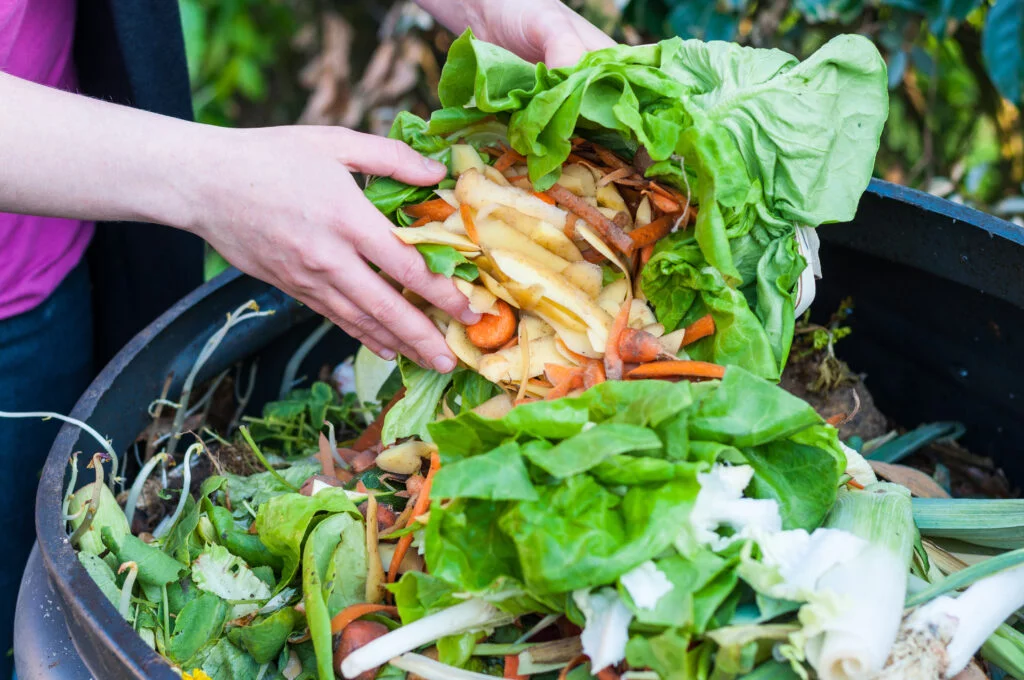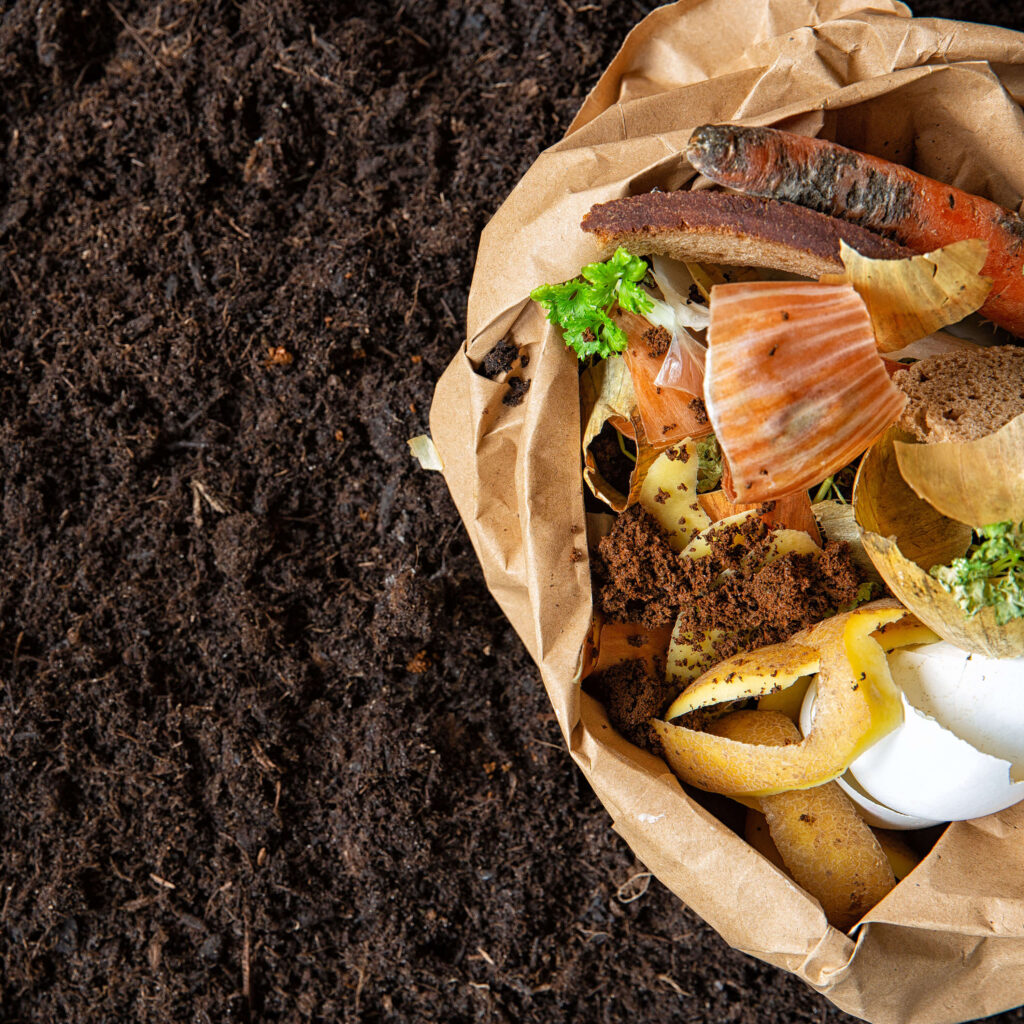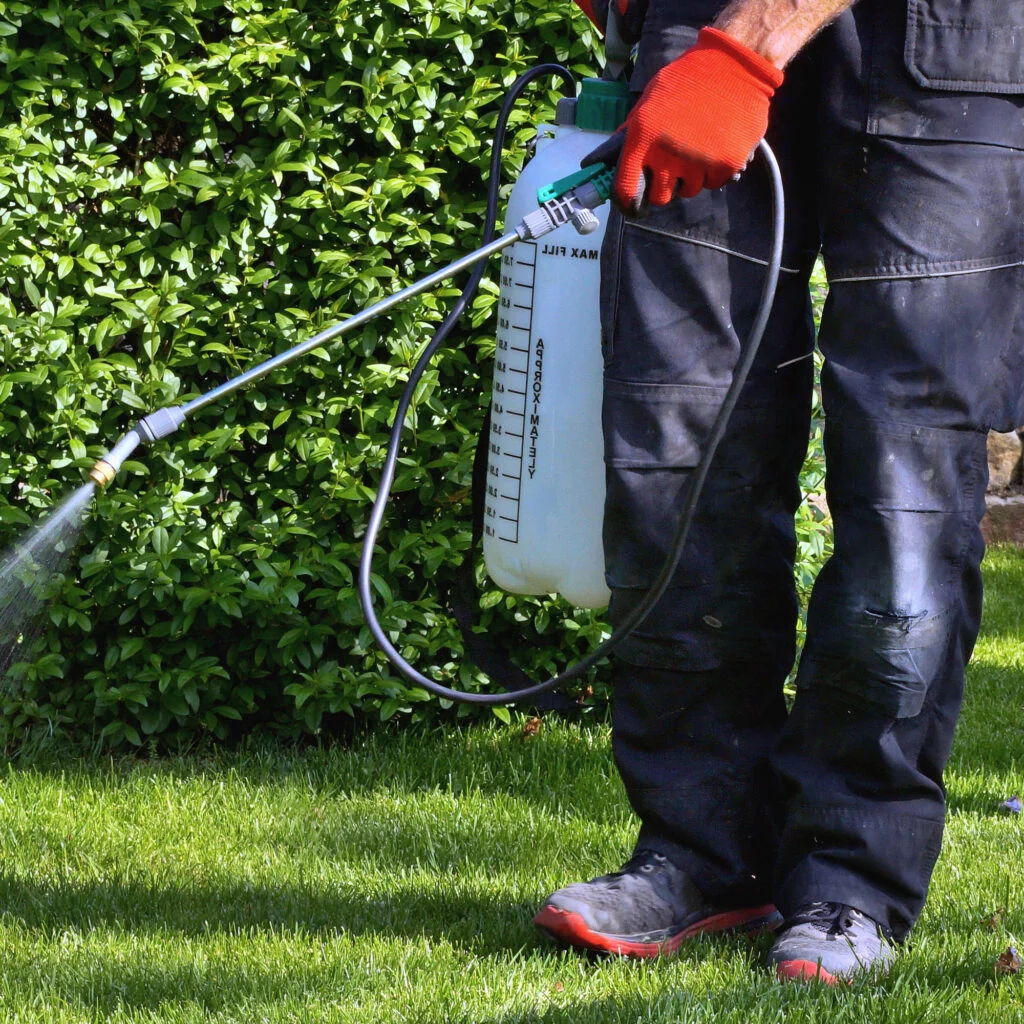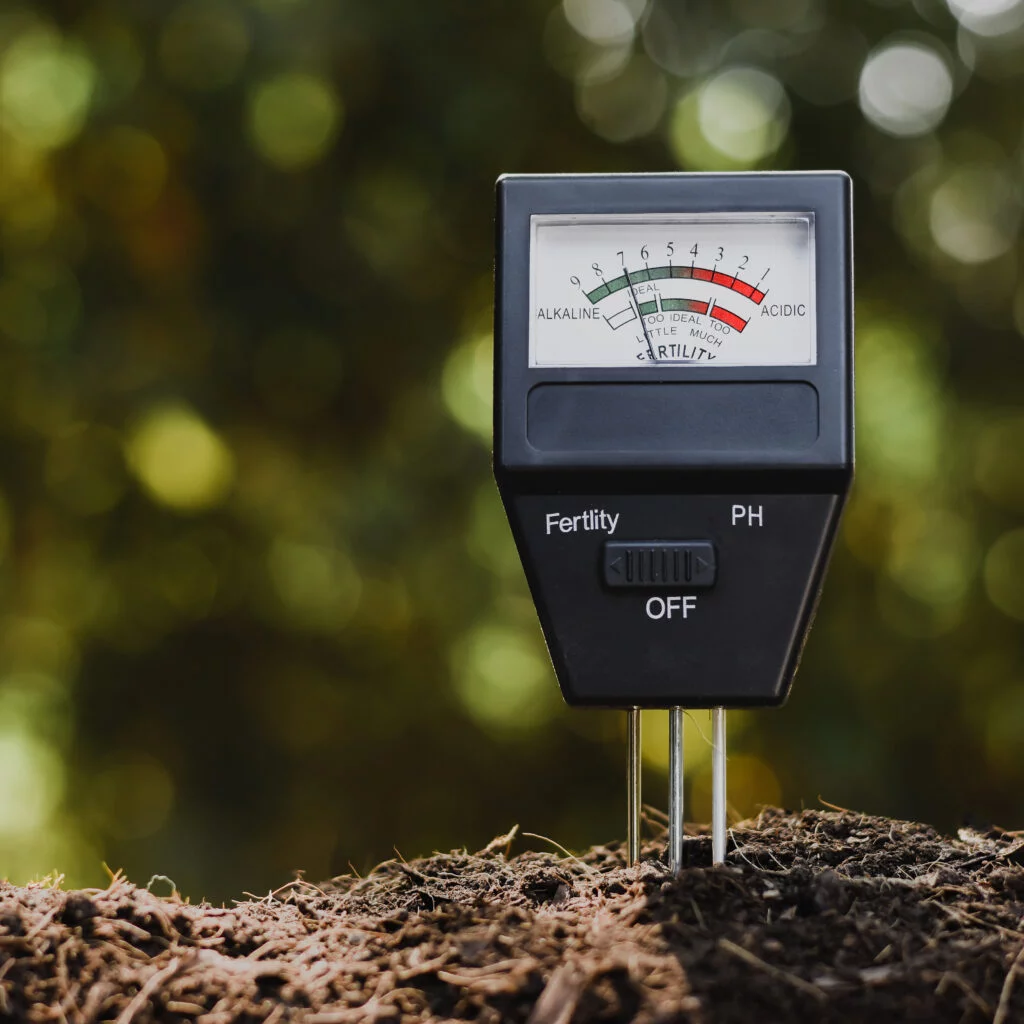More than one-third of what is being thrown in the trash could be recovered and composted. Instead of trashing it, turn food scraps into a rich compost resource—a soil additive that increases the nutrients in soil, reduces erosion and decreases the need for chemical fertilizers along with so much more. We are experts in Minnesota organics recovery and recycling.
Commercial scale organics recovery is the newest form of recycling available to businesses and residents in a growing number of communities. It involves the collection of organic materials such as unused food or scraps along with BPI Certified food related serving or packaging items. These are collected in compostable bags that get separated out of trash or put in a separate collection container altogether for processing. It must be collected separately from yard waste as well due to current regulations by the State. This material is received at our Empire Township compost facility where our professional composting staff processes it into a valuable soil amendment.
Please Note: organics are ONLY accepted at the Empire Township facility. Please deliver food waste recycling 1 hour prior to closing. After hours delivery by appointment only.
Pricing
- Source Separated Organics – Residential: We offer this service as well as provide compostable bags for residents. Visit the Dakota County Organics Drop Off webpage for more information.
- Source Separated Organics – Commercial: Contact us for pricing

What materials CAN be accepted for organics recovery?
This list is to be used as a general guide for material acceptability and should not be construed as all-inclusive or exhaustive. For a full list of organics recovery FAQ items see our Organics 101 page, or contact us with questions.
*Please note that when purchasing compostable products for waste reduction programs with a composting focus, products should first be selected from the list of BPI Certified or CMA Certified Materials prior to purchase or inclusion in a program.
What materials CANNOT be accepted for organics recovery?
This list is to be used as a general guide for material acceptability and should not be construed as all-inclusive or exhaustive. Please contact us with questions.
Do I need to use a compostable bag?
If bagging food scraps before placing in your organics receptacle the bag must be BPI Certified compostable or a plain uncoated kraft paper bag. If you choose not to bag your organics, you may find the need to wash your cart out frequently to prevent odors. Check with your local hauler or drop-site program to see if bags are required to participate in organics recycling. Plastic bags that are not BPI certified are not to be used to transport any organic material to a composter.
Where can I buy certified compostable bags?
Certified compostable bags are sold at most grocery, hardware and large retail stores. Some garden stores and nurseries will also carry them. You may also find compostable bags online (suggested search term: certified compostable plastic bags). Make sure they are BPI Certified.
Compostable bags come in a mini kitchen-pail size (approximately three-gallon bags), standard kitchen-size bag (approximately 13-gallon bags), lawn and leaf size (approximately 33-gallon bags), and even larger for commercial applications. Lawn and leaf paper bags as well as 33 gallon or larger certified compostable plastic bags work well to line your organics recycling cart. If your store doesn’t carry the brand or size that you like, let them know so they can consider carrying it. For more information on certified compostable bag brands and manufacturers, visit the Biodegradable Products Institute’s website at www.bpiworld.org
What happens to my organics?
Your organics will be transported to our permitted commercial organics facility where it will be processed by mixing and grinding feedstocks and blending them for optimal composting conditions. From there they will go into windrows over pipes to force air into those windrows for approximately 45 days. At this time oxygen, moisture and temperatures are monitored to kill any pathogens or invasive plants, weed seeds or species. Temperatures can reach 160+ degrees during this initial phase of composting. Once removed from the windrows it goes into a curing phase for about 6-9 months to properly finish the breakdown process. These piles are turned monthly to keep the process going until it is screened and ready for use in many applications. SET and The Mulch Store are ready to provide any additional information about organics recovery and recycling in Minnesota.
Should I use my garbage disposal or separate food scraps for composting?
Placing food scraps down a garbage disposal may put unnecessary burden on wastewater treatment facilities. Composting food scraps creates an environmentally beneficial product.
Will my organics smell?
Organic materials will not smell any more than your current waste smells. You are not creating new waste you are just separating the organics for composting.
How should I store my compostable bags so they last longer?
Keep compostable bags in a dry temperature-controlled area and out of direct sunlight.
Can I place plastic lined cardboard boxes, freezer boxes or juice/ milk containers in my organics recycling container?
No, these containers have a plastic lining that is not BPI certified. This means there will be plastic fragments left in the finished compost.
Can microwavable popcorn bags be composted?
Absolutely not. Microwavable popcorn bags are plastic-lined and are typically coated with a chemical grease barrier that is not desirable in compost and may also transfer to the popcorn.
What about wax-coated boxes and parchment paper?
Almost all wax and parchment paper is made of a combination of wax and tiny amounts of plastic. For either of these products to go in the organics recycling cart, they must be BPI certified compostable. The BPI compostable logo should be visible on the packaging to throw it in the organics bin.
From our Education Library
The Mulch Store
We're the one-stop shop for your next project needs.


